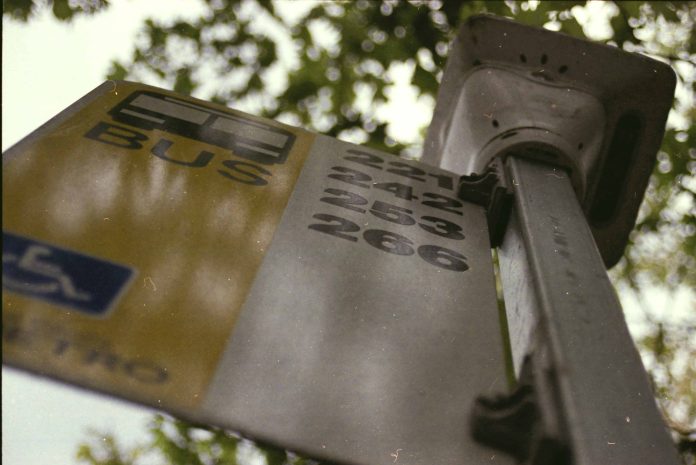I didn’t understand what was going on. There were three passengers left. A silent young African-American man, possibly a UW student, or else passing through the area. Fine. A white female passenger, silent as well, keeping to herself and her headphones. Also fine. And then this guy, who was standing up now. A compact Asian fellow in a Raiders jacket, shouting in a deep bass voice. His face was blank of expression, but the gruff and throaty yells revealed a tightly wound presence within.
“Hey! Bus driver! Hey!”
“Hey!”
“I don’t like how you are!”
There are certain comments I expect to hear due to the frequency with which they’re spoken to me. This isn’t, strictly speaking, one of them. At this point I was more confused then anything else. “What’s that?”
His face may have been as stoic as a mask asking for directions, but he was furious. He nearly made himself hoarse exclaiming the following:
“You invaded my personal fuckin’ space! When I was getting on! I don’t like when my personal fuckin’ space is invaded, makes me fuckin’ uncomfortable as shit! You waved your fuckin’ paws in my fuckin’ face when I was trying to pay the fuckin’ fare! Fuckin’ asshole, don’t ever fuckin’ do that fuckin’ shit again! Waving your fuckin’ paws all over my fuckin’ face, right near my fuckin’ head!”
Reader, I had, and have, absolutely no clue what he was referring to. I could summon utterly no memory of using my hands, or arms, to interfere with people’s faces on this otherwise entirely docile trip to the U District. There’s the slightest chance that he was paying the fare while I waved bye to someone exiting the back doors, but that would only be a concern if he had a personal bubble the size of Alaska. But nevermind.
“Whoa,” I said, respectfully, “I didn’t mean to do that, man, I apologize.”
“Don’t ever fuckin’ do that again makes me feel fuckin’ uncomfortable. I don’t like when people invade my personal fuckin’ bubble! Fuckin’ paws!”
“I apologize, man. I didn’t mean to disrespect you.”
“Fuckin’ paws in my fuckin’ face!”
Calmly: “I didn’t mean no disrespect. I made a mistake. I made a mistake, and I appreciate you tellin’ me what’s up.”
“Fuck.”
“Thank you for lettin’ me know. Not gonna do it again.”
The only reason I reacted as I did, the only reason I knew to even try this approach, was because of an incident I saw riding the bus in my childhood, documented here. That old driver from so long ago, on the now-defunct 253, had no idea the great example he was setting, how much it resonated with me. I never spoke to him, after all. But for those thirty seconds, he was a teacher of mine. Twenty-odd years later, I’d put his lesson to use.
The woman with the headphones hadn’t noticed a thing. She left, oblivious. But the African-American fellow, a few years younger than myself, walked up to thank me before leaving. He didn’t address the interaction, but I knew he’d watched it all. I’d seen him in the mirror. His eyes spoke more than his lips did, and he seemed to be processing, considering things. He nodded a deep respect to me as he stepped out. “Have a good night,” he said. I wondered if he was seeing something not unlike what I once saw, decades ago.
Maybe we’re all just paying it forward.
Nathan Vass is an artist, filmmaker, photographer, and author by day, and a Metro bus driver by night, where his community-building work has been showcased on TED, NPR, The Seattle Times, KING 5 and landed him a spot on Seattle Magazine’s 2018 list of the 35 Most Influential People in Seattle. He has shown in over forty photography shows is also the director of nine films, six of which have shown at festivals, and one of which premiered at Henry Art Gallery. His book, The Lines That Make Us, is a Seattle bestseller and 2019 WA State Book Awards finalist.


